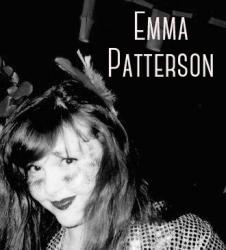Frank McGuinness’ iconic Observe the Sons of Ulster Marching Towards the Somme was first staged in the Abbey Theatre, Dublin, in 1985. 2016 is a momentous year of Irish anniversaries, the 100th anniversary of the Battle of the Somme and the 100th anniversary of the Easter Rising, and as such it is a timely moment for Headlong Theatre Company, the Abbey, Citizens Theatre and Liverpool Everyman and Playhouse to present their exceptional take on this classic piece. The play provides an alternative narrative of 1916 to the one at the heart of the Irish nationalist imagination; highlighting that the Battle of the Somme is as crucial to the cultural memory of Ulster Protestantism as the Rising is to Republicanism.
The drama is set in 1916, in the trenches of France and the six counties that would become Northern Ireland. It offers a compelling and humane consideration of the Protestant men of the 36th Ulster Division of the British Army. Our main characters are painted with sympathy and understanding, hailing from all walks of life and demonstrating all shades of Ulster Protestantism; from Belfast’s dockyards to Coleraine’s factories, and the churches of Enniskillen. Thrown together as volunteers, the play follows our eight protagonists through their first journey to the front lines, their brief time on leave back in Ulster, and their final journey to the Somme, from which only one would return. Despite their proclamations of loyalty to King, country, Ulster and the Protestant Gods, they ultimately go to their deaths motivated only by their allegiance to one another.
Director Jeremy Herrin and his gifted cast give powerful expression to the exquisitely crafted script. The production suffers from no weak links, and the entire cast delivers captivating performances that certainly live up to the epic and horrendous historical scale of the original text. Donal Gallery portrays the mercurial and supercilious upper-class Pyper with ease, and his interactions with Ryan Donladson’s Craig are particularly beguiling. The friendship depicted between Miller and Moore, played by Iarla McGowan and Chris McCurry, is another highlight, remaining heart-warming and touching from start to finish. Contrasting the bluff bravado of the frontline with the home truths of their brief time on leave, the cast expose the fears, insecurities, loves and passions of a generation seemingly cursed to face an early death. The final scenes are inevitably tragic and harrowing, but the cast must be commended for delivering such truly comical and witty performances, striking the perfect balance between the horrors of war and the morality of the men who gave their lives.
The set, designed by Ciaran Bagnall, provides the perfect backdrop to the excellent performances delivered on stage. It’s an austere and ominous abyss in the first scene, transforming from army barracks to Boa Island, and finally to the front line. Music and Lighting, designed by Emma Laxton and Paul Keogan respectively, are used to equally devastating effect; haunting drumbeats and the blood red skies add to this brooding and dark production.
The Battle of the Somme remains one of the most horrendous episodes in human history, and one of the most brutal and destructive battles in history with over 57,000 British casualties on the first day alone. McGuinness’ script sensitises us not only to war’s futile loss of life, but also its damage to a way of life. Without being blind to the contradictions and conflicts of Protestant Ulster, he offers a portrayal of a community bound by shared experience and common humanity, and therein lies the appeal of this drama.




